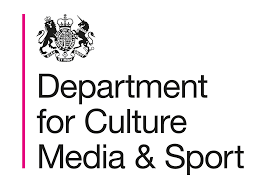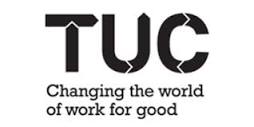PRESS RELEASE : New plans to bring online TV channels under Ofcom content rules [September 2023]
The press release issued by the Department for Culture, Media and Sport on 20 September 2023.
Internet-based TV channels on smart TVs could be brought in line with existing Ofcom content rules on traditional TV.
- Law change would ensure children and vulnerable viewers remain protected and enable audiences to complain to Ofcom
- New review announced into the future of TV distribution – including Freeview, satellite, cable and online – to ensure audiences can tune in for decades to come
More online TV channels could be required to follow Ofcom content rules to ensure young and vulnerable audiences are protected from harmful programming, under plans announced by the Culture Secretary at the Royal Television Society Cambridge Convention this afternoon.
In a wide-ranging speech, Lucy Frazer set out her plan to maximise the potential of the TV industry to seize the opportunity presented by the infinite choice on offer in today’s media landscape, and to ensure fair competition amid an increasingly fierce global battle for viewers.
Figures show that more than seven in ten UK households now have a smart TV, through which audiences can access up to 900 unregulated and mostly internet-based TV channels via innovative new services such as Pluto TV, Samsung TV Plus, LG Channels and Amazon Freevee.
These channels are not currently required to meet the same world-leading standards expected of traditional broadcasters. While some channels follow rules on inappropriate or harmful material voluntarily set by the companies who run them, UK viewers cannot complain to Ofcom if they are concerned by a programme, and Ofcom has no powers to issue fines or other sanctions if a channel broadcasts harmful material.
That’s why, as part of the Culture Secretary’s mission to modernise broadcasting rules for the digital age, a consultation has been launched on proposals to bring unregulated TV channels into scope of Ofcom’s Broadcasting Code, which is already followed by terrestrial and satellite channels.
Alongside new content rules on the streaming services in the draft Media Bill, the reforms would level the playing field with traditional broadcasters while preserving the greater choice offered by these exciting new services. It will assure audiences that what they see on TV follows a similar set of rules regardless of how they tune in, and maintain the UK’s longstanding tradition of media freedom.
A new research and engagement programme looking at the future of TV in the UK was also unveiled. The work will help ensure audiences continue to have access to world-class TV – regardless of how technology changes in the coming decades – and support the industry to navigate and seize the opportunities ahead. It will also help inform long-term policy decisions on extending the current commitment to keep Freeview on air until at least 2034.
In a speech today at the Royal Television Society Cambridge Convention, Culture Secretary Lucy Frazer said:
Here in the UK our TV is genuinely world leading… Many of the most celebrated shows of this golden era have been made here in the UK, written here in the UK, and shot here in the UK.
We recognise that internet provided TV is growing… But while this shift is an exciting one, it’s our job to look at those channels that fall outside our existing regulations.
That’s why we are going to consult on whether we need to extend regulation to these unregulated channels… any change to regulations must strike a balance between protecting people – particularly the young and vulnerable – while protecting freedom of speech, and not unduly burdening the TV industry.
The Culture Secretary also reinforced the government’s commitment to bringing forward a Media Bill that will expand opportunities for public service broadcasters to take advantage of the digital age. She also set out her mission to support the TV industry through the one million new jobs promised in the Creative Industries Sector Vision and tax reliefs on productions, and to protect freedom of expression whether that’s through cutting-edge drama or documentaries which shine a light on controversial topics.
Consultation on unregulated TV channels
Figures show that up to 74 per cent of UK households now have a smart TV, through which audiences can access a growing number of unregulated and mostly internet-based TV channels, with a particularly rapid increase in the number of free ad-supported streaming television (FAST) channels. Shows are often watched in a similar way to traditional TV in that viewers browse through channels showing a continuous stream of programmes via an electronic programme guide (EPG) – or ‘TV guide’.
These services have created an innovative way for audiences to enjoy shows highly tailored to a particular interest, such as World War TV or The Chat Show Channel, and some are dedicated to a single programme such as Come Dine With Me or Masterchef.
There is a growing number of at least 19 unregulated EPGs – including Samsung TV Plus, Pluto TV, LG Channels and Amazon Freevee. These services are easily accessible, with some available at the touch of a button on a TV remote control.
There is currently a fixed list of EPGs which are regulated by Ofcom’s Broadcasting Code: Freeview, Freesat, Sky, Virgin Media, and YouView. This means that those watching programmes not shown on these EPGs cannot complain to Ofcom if they are concerned by a programme and Ofcom has no powers to issue fines or other sanctions if a channel broadcasts harmful material
DCMS research found examples of potentially harmful content which could easily have been found by children or vulnerable audiences, including swearing and sexual content before the 9pm watershed.
Unregulated channels also don’t have to follow Ofcom rules on ensuring subtitles, audio description and signing are available for people with disabilities, and are not required to ensure public service broadcasters are shown prominently in TV guides.
Given the landscape of changing technology and the increasing popularity of these services, the government has launched a consultation on how to use existing powers that allow it to update which EPGs are regulated in the UK. This will level the playing field with traditional broadcasters who are already required to follow Ofcom’s Broadcasting Code.
In addition to new powers for Ofcom to draft and enforce new content rules for on-demand content already announced in the draft Media Bill, these reforms would assure audiences that the shows they see on TV meet the same set of high standards, regardless of how they choose to tune in.
The proposals, subject to consultation responses from industry and the wider public, would extend the list of EPGs regulated by Ofcom to include only the most popular and easily accessible EPGs, available via a television set. The consultation makes clear that any regulatory change must strike a balance between protecting people – particularly the young and vulnerable – while protecting freedom of speech. It will also seek views on how any changes to regulation are not unduly burdensome on industry, respect media freedoms, and do not discourage competition and innovation.
Project launched to understand the future of UK’s TV landscape
In her speech the Culture Secretary also launched a major research and engagement programme looking at how UK audiences will get their TV in the decades to come, as part of the government’s commitment to ensure future audiences continue to have access to world-class shows.
The work will take a broad look at the future of TV distribution, including how changing viewing habits and technology will impact how programmes are brought to our screens over the next decade and beyond, particularly in light of the rising popularity of streaming platforms and other internet-based forms of TV viewing.
It will look at all the technologies currently used to broadcast TV, including Freeview, satellite, cable, and online. As part of the project, the government has commissioned new research that will inform the government’s long-term strategy for the UK’s TV broadcasting landscape, ensuring audiences continue to be well-served regardless of how they are watching TV. Building on a commitment in the 2022 Broadcasting White Paper, Ofcom will also be publishing a call for evidence later in the autumn, that will inform this work.
The government will work in partnership with industry to fully realise the opportunities of the changing TV landscape, keeping the needs of audiences – particularly those who rely upon services like Freeview – front and centre.



